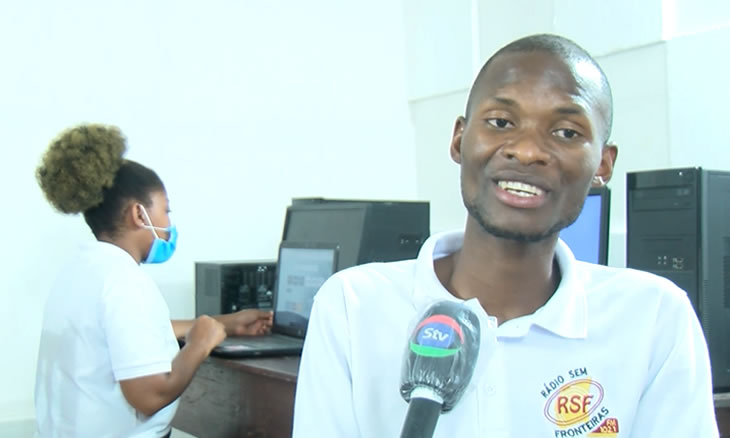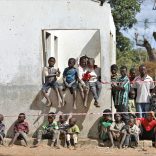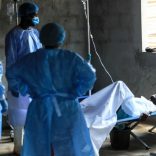Mozambique Insurgency grows at 'sensitive' time for TotalEnergies' return - AFP
Cabo Delgado: No access to conflict zones for local journalists – O País

Photo: O País
About two weeks after the Mozambican government announced the recovery of the town of Mocímboa da Praia, which was occupied by insurgents in August 2020, most journalists in Cabo Delgado still do not have access to the site, to confirm the information and report further.
“Journalists from here have to be on the front line, because we have basic knowledge about the reality of the province, the people and the languages spoken by the population, which is very important,” local journalist Emanuel Muthemba complained.
The situation perturbs media professionals based in Cabo Delgado, who denounce discrimination against bodies entitled to cover the liberation of the town, which had been out of the state’s control for almost a year.
“Unlike the country’s public and international media, journalists from Cabo Delgado, especially those working in the private media, have not had free access to the northern part of the province since the terrorist attacks began in 2017. I knew that this would happen, but it is an incomprehensible situation, which jeopardises press freedom,” another Cabo Delgado-based journalist, Buanamade Assane, said.
Because of the ban on local journalists, most media outlets have been publishing news based on information gathered by the few reporters who have access to the northern part of the province.
“We had the first information about what was and is actually happening in the north of the province from national and international public [media] bodies, which have free access to the conflict zones. Under normal conditions, this should not happen, because almost all [reporters] who come here to report the situation don’t know the terrain, and worst of all, they don’t even master the local languages – something which would allow them to get more details from the population,” argued Rui Minja, another journalist based in Cabo Delgado.
Some reporters do not understand the reason for their not being allowed access to the conflict zones, and suspect that the government is hiding the reality on the ground.
“This shows that the government is hiding something that is happening on the ground. At least, that is what is on the minds of all journalists in Cabo Delgado,” Buanamade Assane alleges.
The ban on access to conflict zones is felt as a humiliation for local journalists, who have been reporting on the armed attacks in the province from a distance. This hampers the work of media professionals.
“And speculation grows that we are not capable of doing this type of coverage – that only those from the country’s capital are. But this is not true, because we are the ones who have been reporting on the daily life of the province,” said Assane Issa, another journalist.
Media professionals in Cabo Delgado are disappointed at the alleged discrimination and are asking for reconsideration by the government, as this absence of local reporting in local languages might contribute to misinformation spreading among the local population.
“We ask that the government review its position and remember that we are in a democratic society, which is built by everyone. The country belongs to everyone and we all need to have space to work, at the risk of us [journalists] losing credibility among the population, and this giving way to speculation derived from false information circulating on social networks,” Assane warned.
Recently, more than 20 journalists from all over the country went to Pemba, intending from there to visit and carry out their work in the liberated areas. However, for reasons unknown, they never left Pemba for the northern parts of the province, where movement of people remains restricted and the few civilians granted access need to be accompanied by Defence and Security Forces personnel
By Hizidine Acha













Leave a Reply
Be the First to Comment!
You must be logged in to post a comment.
You must be logged in to post a comment.